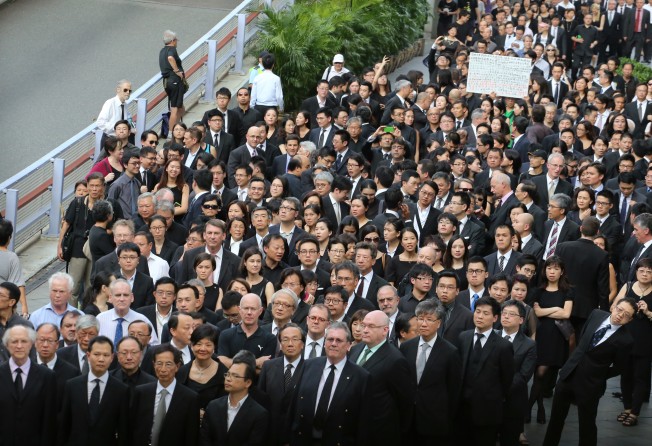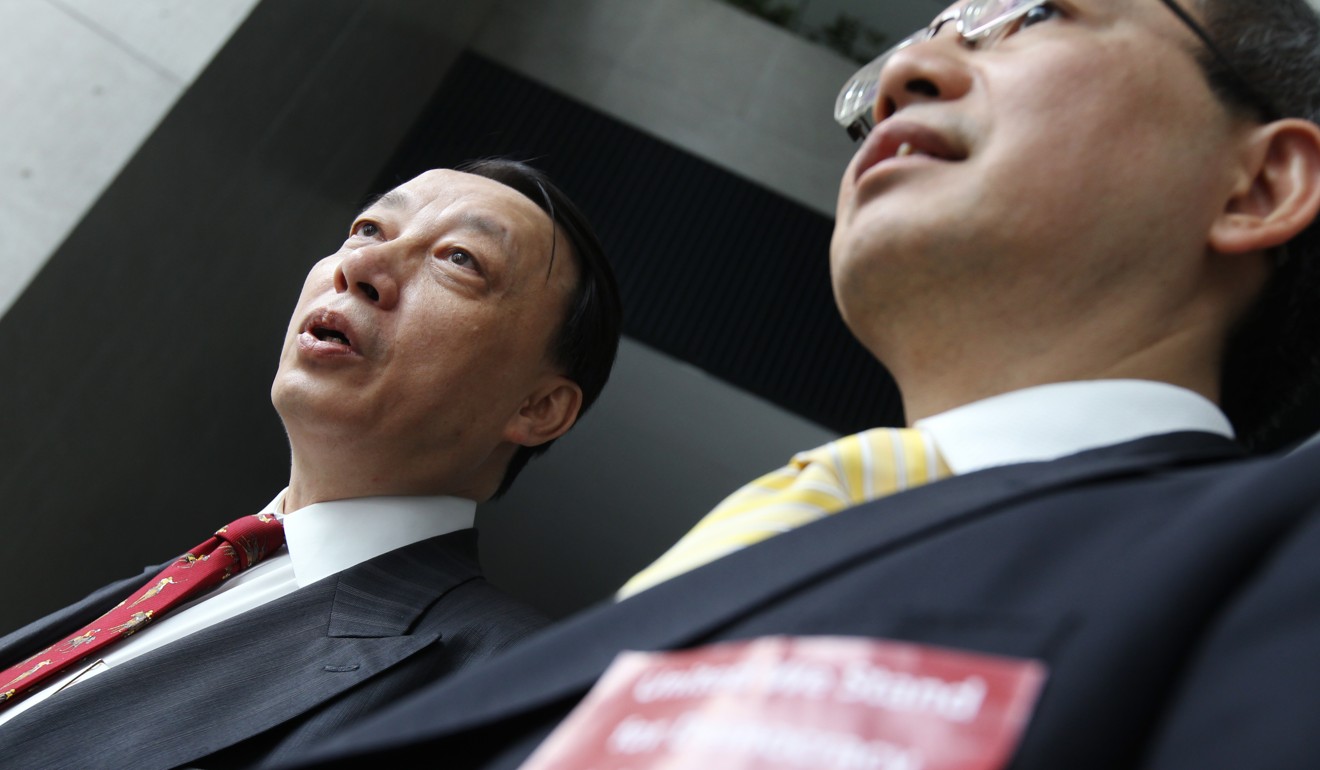Hong Kong extradition bill: lawyers announce rare silent protest as city’s leader Carrie Lam survives no confidence vote
- City’s legal profession to protest legislation they say puts judiciary in difficult position
- Chief executive comfortably survives despite criticism from all sides

Hong Kong lawyers said they would stage a rare silent march next Thursday to protest a contentious extradition bill they claim has put the judiciary in a difficult position, as the city’s leader comfortably survived a vote of no confidence.
The march, which would be the fifth of its kind since the city’s handover to China in 1997, was announced as Chief Executive Carrie Lam Cheng Yuet-ngor came through the first no confidence vote in her leadership unscathed, despite lawmakers across the board criticising her handling of the extradition proposal.
The bill, which has faced immense opposition from pan-democrats, the business sector, and the international community, would allow the transfer of fugitives to jurisdictions which the city does not have a treaty with, including mainland China.
Critics have expressed concern over unfair trials and a lack of human rights protection north of the border, but the government has insisted the city’s courts would have the final say on granting the arrest and eventual transfer of any fugitive.
In the Legislative Council, lawmakers from both sides criticised Lam’s approach to the bill as she faced a largely symbolic vote she was never going to lose on a motion moved by Democrat Andrew Wan Siu-kin.
The motion, which required split voting, was defeated by 15 votes for and 18 against in the geographical constituency.
It also failed to pass in the functional constituency, with 8 votes for and 22 against.
Legal sector lawmaker Dennis Kwok, who has organised the march, accused the government of being “deeply shameful and dishonest” by misleading the public when it said the courts could be an effective gatekeeper.
“There is nothing the courts can do [to ensure] the defendants would receive a fair trial and due process once he or she is extradited to that jurisdiction,” he said.
Kwok said from his personal experience, members of the profession, ranging from those in the justice department or in the judiciary, were all deeply worried about the bill and the impact it could have on Hong Kong’s rule of law.
Lawrence Lok Ying-kam, a leading criminal barrister, said he felt strongly about the repercussions of the bill, which he said could affect everyone in Hong Kong, and not just well-off mainlanders in the city, as some have suggested.

Former Bar Association chairman Edward Chan King-sang said he would try to attend the march, as he criticised the government’s legislative effort for already undermining the city’s reputation for rule of law and the principle of “one country, two systems”.
“The government has created an impression in the outside world that the central government could directly intervene in the city’s internal affairs,” Chan said, noting widespread concerns by business chambers and foreign diplomats.
“As we talked about one country, two systems, and rule of law, it’s not about feeling good ourselves – it also has to be recognised by others.”
Chan said the government was obliged to ensure the place requesting extradition could provide a comparable standard of justice, and should spell out the safeguards in the law.
Hong Kong officials have claimed one of the aims of the bill is to facilitate the transfer of Chan Tong-kai, a local wanted in connection with the murder of his pregnant girlfriend in Taipei last year.
During the debate, Wan accused Lam of lying about the extradition bill.
“She said there is urgency in the Taiwan case,” Wan said. “What’s the hurry? When Taiwan and its Mainland Affairs Council has said it will not extradite [Chan] under the proposed amendments.”
The council, an official body in Taiwan, has said the bill puts its citizens at risk of being transferred to the mainland, and has said it would not ask for Chan’s return.
Chief Secretary Matthew Cheung Kin-chung hit back at the accusations, and said lawmakers risked insulting the chief executive by calling her a liar, he also described the motion as “unreasonable and unfair”.
Pro-establishment camp lawmaker Michael Tien Puk-sun, who did not support the extradition bill, said the vote of no confidence was not warranted, as there had been no misconduct on Lam’s behalf.
But Tien said the chief executive and her administration were responsible for the controversy surrounding the bill.
“A solution was only proposed one year after the case had happened,” Tien said. “It was bundled in with a problem that has not been solved for the past 20 years.”
He was referring to the lack of an extradition agreement between Hong Kong and the mainland since the city returned to Chinese rule.
Meanwhile, the Civil Human Rights Front has failed to reach a deal with police over the arrangements for an anti-extradition bill march on June 9, as the force only agreed to open three – instead of four – driving lanes, from Causeway Bay to Admiralty, for the protesters.
A police source said the group’s proposal was not practical as it would obstruct the pathway for emergency vehicles.
Additional reporting by Su Xinqi and Christy Leung